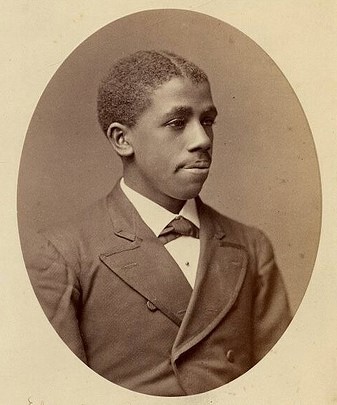The purpose of the Edward A. Bouchet Graduate Honor Society is to recognize outstanding scholarly achievement and promote inclusive excellence in doctoral education and the professoriate.
The Edward A. Bouchet Graduate Honor Society seeks to develop a network of preeminent scholars who exemplify academic and personal excellence, foster environments of support, and serve as examples of scholarship, leadership, character, service, and advocacy.
In the spirit of Edward A. Bouchet and the scholarship, leadership, character, service, and advocacy he exhibited, both inside and outside academic realms, inductees into the honor society bearing his name must also exhibit these same outstanding qualities.
For questions, contact Dr. Terah Chambers.
